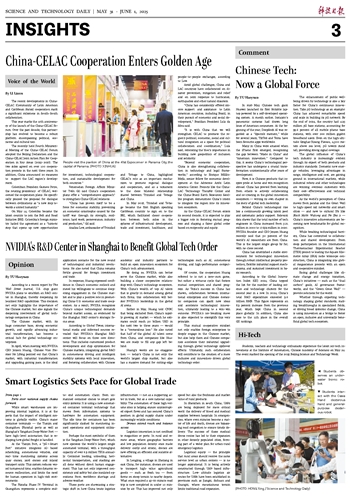
According to a recent report by The Wall Street Journal, U.S. chip giant NVIDIA plans to establish an R&D center in Shanghai, thereby deepening its localized R&D capabilities. This decision not only highlights the importance of the Chinese market, but also signals the deepening involvement of global technology companies in China.
The Chinese market, with its huge consumer base, strong economic growth, and rapidly advancing industrial transformation, has become a critical hub for global technology enterprises.
In April, when meeting with NVIDIA CEO Jensen Huang, Chinese Vice Premier He Lifeng pointed out that China's market, with industrial transformation and upgrading gaining pace, is the ideal application scenario for the new round of technological and industrial revolutions. He also noted that China remains fertile ground for foreign investment and trade.
In response, Huang expressed confidence in China's economic outlook and stated his willingness to continue deepening engagement in the Chinese market and to play a positive role in promoting China-U.S. economic and trade cooperation. As a result, NVIDIA recognizes China's unique technological demands beyond market access, as evidenced by the Shanghai R&D center's strategic focus areas.
According to Global Times, international media and informed sources revealed that NVIDIA's Shanghai R&D center will focus on three core directions. This includes customized product development and chip optimization for Chinese markets, integrating global R&D in autonomous driving and intelligent mobility systems with local innovation, and fostering collaboration with Chinese academic and industry partners to build an open innovation ecosystem for China's tech advancement.
By doing so, NVIDIA can better serve the Chinese market, while also building a closer cooperative relationship with China's technology ecosystem. With China's wealth of top AI talent that is greatly in demand among global tech firms, this collaboration will bolster NVIDIA's leadership in the global AI arena.
Earlier in May, Huang told CNBC that being excluded from China's rapidly growing AI market — which he estimates could reach 50 billion USD in the next two to three years — would be a "tremendous loss." He also noted that half of the global AI talent come from China, and companies like Huawei are ready to fill any gap left behind.
Huang's words are no exaggeration — today's China is not only the world's largest chip market, but also has a massive demand for cutting-edge technologies such as AI, autonomous driving, and high-performance computing.
Of course, the cooperation Huang referred to is not a zero-sum game, but rather a virtuous cycle that fosters mutual competition and shared progress. As Tesla's success in China has shown, collaboration between international enterprises and Chinese domestic companies can spark new ideas and accelerate technological innovation, ultimately leading to a win-win outcome. NVIDIA's ice-breaking move is also expected to exemplify this very principle.
This mutual cooperative mindset not only enables foreign enterprises to deeply engage in the Chinese market, but also help them and Chinese companies accelerate their industrial upgrading through global technology spillover effects. Ultimately, such collaboration will contribute to the creation of a more inclusive and innovation-driven global technology order.


 Next
Next




